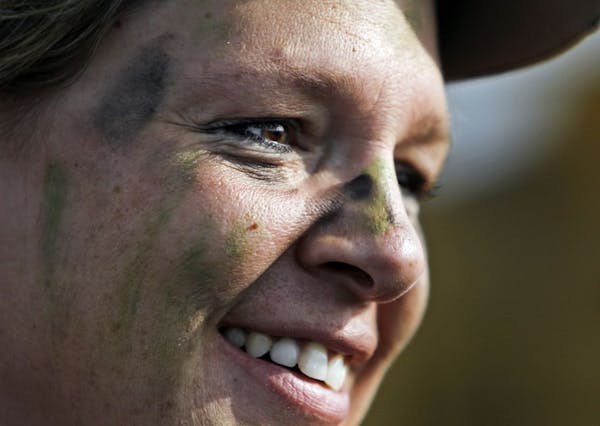An old adage suggests it's better to hunt with your kids, than for them. But developing young people into hunters -- or anglers, campers, or paddlers -- isn't easy nowadays.
Too many distractions exist in the form of team sports, as well as new media (video games, Internet) and old media (TV) to believe the percentage of American youth who "live outdoors" ever will rival the population share that did long ago.
Yet it's also true that most parents pay only lip service to providing their kids with outdoor alternatives to these distractions, and they opt too often instead to drop their young ones off at soccer practice or a similar activity -- allowing someone else to provide their children's recreation.
So what, you say? Just this: If it's true, as many people believe, that nature, broadly defined, and activities in it are beneficial to individuals, families and society as a whole, and if it's also true that the nation's youth suffer from a nature deficit disorder, it follows that efforts made toward reducing that deficit are in and of themselves valuable and rewarding. To everyone.
On Saturday, first day of the early goose season, I reflected on this as I hunted with my son, Cole, and his pal, Max Kelley, both 15.
I say "hunted," but I didn't carry a gun, as I usually don't in these cases. Instead, I helped facilitate the outing by driving them to their hunting field, helping to lug decoys and other equipment and trying to ensure the boys' safety.
But they could have gotten along without me. Both have hunted since a young age. Both are skilled duck and goose callers, hunters and shooters. And both know what gear to bring, when and how to load it into a pickup and what to do when we're on site.
All good. But ask them how many kids in their respective schools hunt, and the answer is "almost no one."
"A few kids go with their dads on the deer opener," Max said. "But bird hunting? Hardly any. Maybe none."
Assuming that impression is true nationwide -- and research says it generally is -- and the problem of sustaining hunting indefinitely (and the conservation it supports) becomes apparent. No one knows the answer, exactly. But here are five guideposts, based on my experience, that parents (aunts, uncles, mentors -- whoever) might consider.
Start early. Every year that passes after age 5 without regularly taking a child afield decreases the chance you'll "hook" them.
Live the life. If you want a child to hunt or fish, get off the couch. These aren't passive activities. The kids' interests, in the end, will reflect yours.
Enlist relatives who fish or hunt to also take your child outdoors. Or try Boy Scouts or Girl Scouts. Trite but true: It takes a village to raise outdoors people.
Show kids success early. Example: Panfish bite often, walleyes less so. Try the former first.
Make it fun. After a morning's hunt, take the kids out to breakfast. Or while fishing, let them drive the boat. Invite a friend of your sons or daughters to tag along.
Max and Cole killed one goose Saturday morning. Would they have been happier had they taken their combined limit of 10? In some ways, yes. In other ways, "No big deal."
Their main concern: When can we go again?

Anderson: Celebrate Earth Day by rekindling real connection to nature
Anderson: Anglers protesting tough new Mille Lacs rules are wrong

Anderson: Courts, not politicians, should rule on Red Lake, White Earth lands

Anderson: Multimillion windfall gets invasive carp deterrent moving
![A young whitetail deer searches for food as another blanket of snow coats the arrowhead. ] Minnesota -State of Wonders, Arrowhead in Winter BRIAN PETE](https://arc.stimg.co/startribunemedia/WK32UWWY6FKNWJUIYCJ6ZPT4AU.jpg?h=91&w=145&fit=crop&bg=999&crop=faces)

